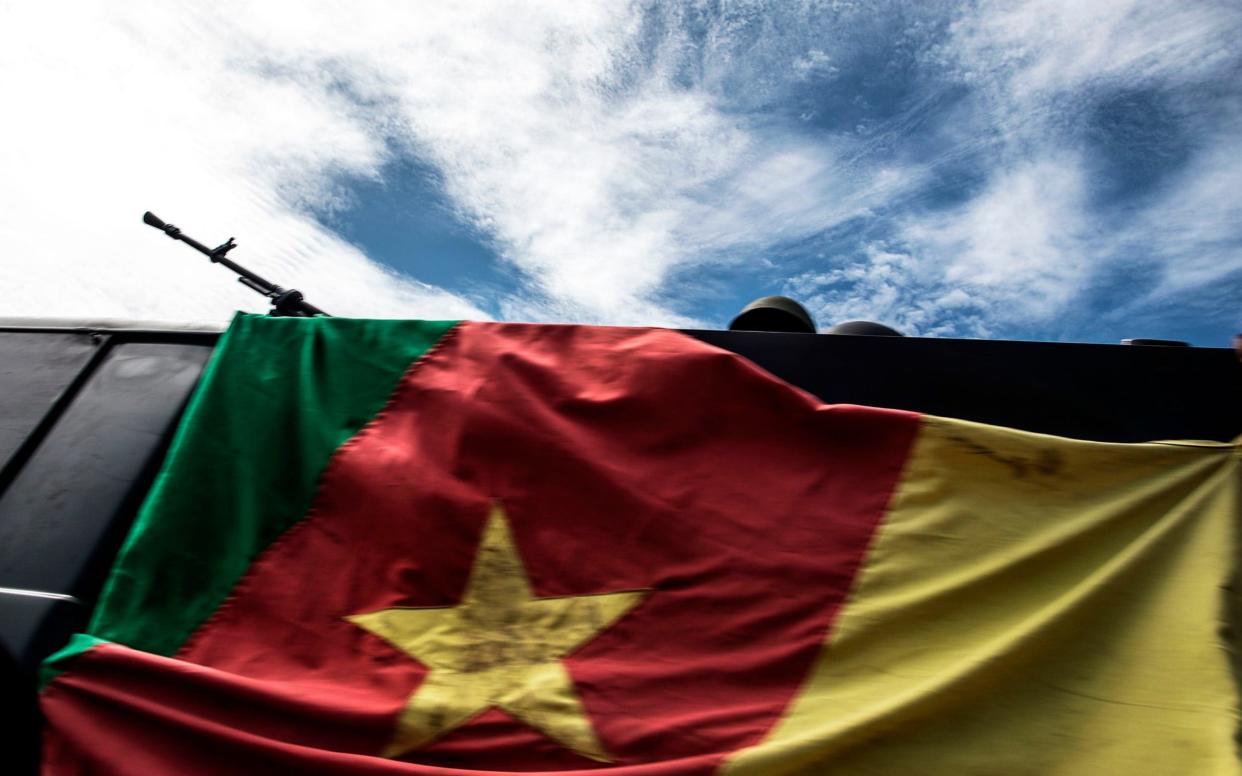78 school children kidnapped in Cameroon

Armed separatists have kidnapped at least 78 students and their principal from a Presbyterian school in Nkwen village in Cameroon's restive northwest region, a governor said Monday.
The kidnapping late Sunday took place near Bamenda, the capital of the troubled English-speaking region, according to Governor Deben Tchoffo.
A video purportedly of the kidnapped children has been released on social media via men who call themselves Amba boys, a reference to the state of Ambazonia that armed separatists are trying to establish in Cameroon's northwest and southwest regions.
In the video, the kidnappers force several of the young male students to give their names and the names of their parents. The children say they were kidnapped late Sunday by the Amba boys, and they don't know where they are being held.
The men who identify themselves as the kidnappers say they will only release the children when they achieve what they want.
"We shall only release you after the struggle. You will be going to school now here," say the men who identified themselves as Amba boys. While the video could not be independently verified, parents have been reacting on social media saying they recognize their children in the video.
It comes after elections on October 7 that saw President Paul Biya, 85, who has ruled the country with an iron fist for 35 years, secure a seventh term in office.
Mr Biya was credited with 71.3 percent of the vote, although the ballot was marred by allegations of widespread fraud, low voter turnout and violence.
He takes his oath of office on Tuesday.
Around a fifth of Cameroon's 22 million people are English-speaking - a minority whose presence dates back to the colonial period.
Cameroon, once a German colony, was divided between Britain and France after World War I.
The French colony gained independence in 1960, becoming Cameroon. The following year, the British-ruled Southern Cameroons was amalgamated into it, giving rise to the Northwest and Southwest regions.
But resentment at perceived discrimination at the hands of the francophone majority, especially in education and the judiciary, began to build.
In 2016, demands for greater autonomy grew but met with a rebuff by Mr Biya.
As radicals took ascendancy, the anglophone movement declared the creation of the "Republic of Ambazonia" in the Northwest and neighbouring Southwest Region on October 1, 2017.
No country has recognised the self-declared state.
The separatists have gunned down troops and police, boycotted and torched schools and attacked other perceived symbols of the Cameroonian state.
The authorities have responded with a massive crackdown by police and troops.
At least 400 civilians have been killed this year as well as more than 175 members of the security forces, according to a toll compiled by non-governmental organisations.
According to UN figures, 246,000 people in the Southwest Region have fled their homes, and 25,000 have sought shelter in neighbouring Nigeria, many of them living hand-to-mouth in the forests.
Estimates of displaced people in the Northwest Region are not available.

